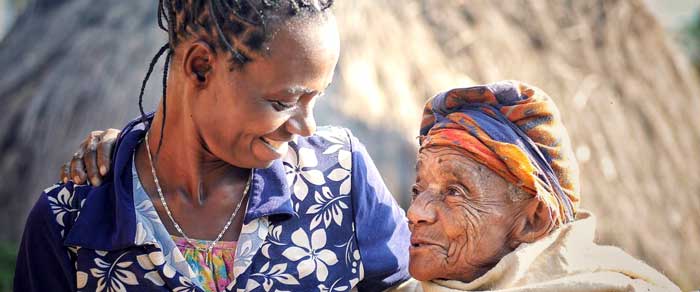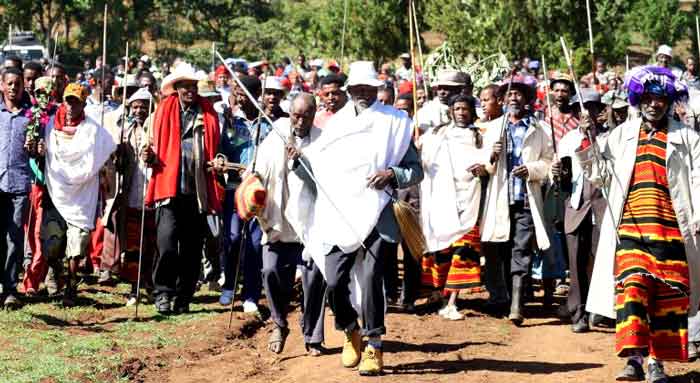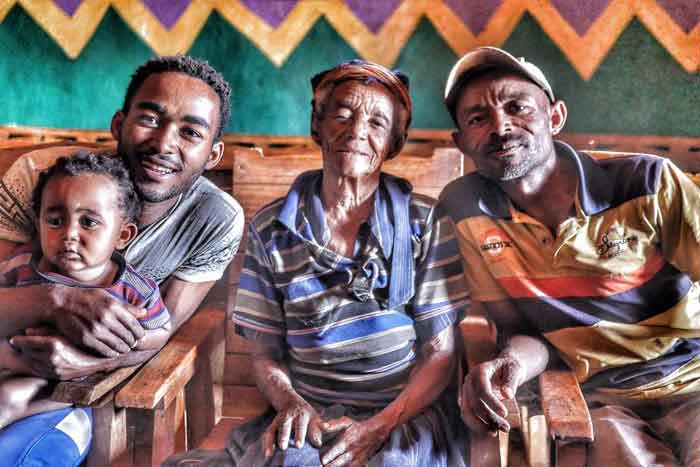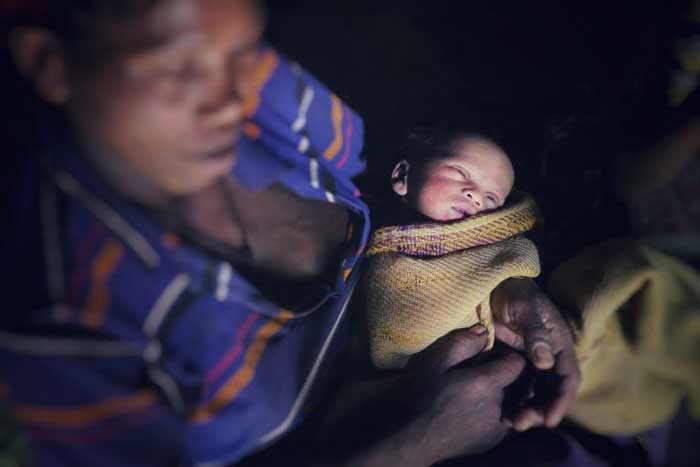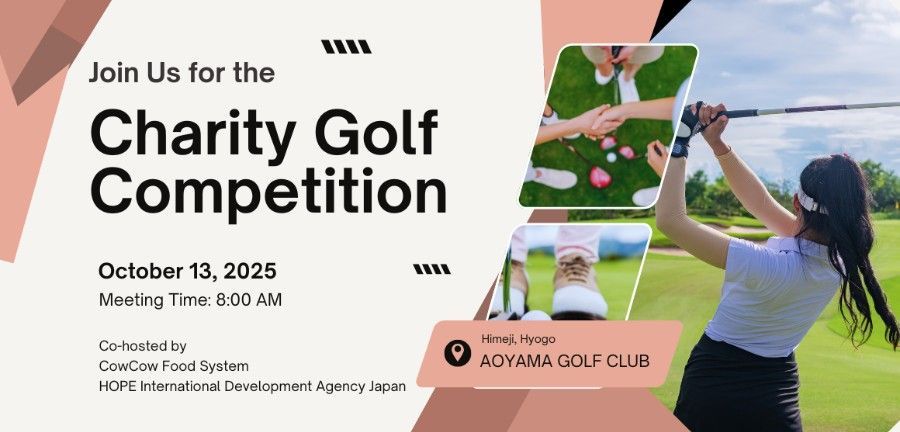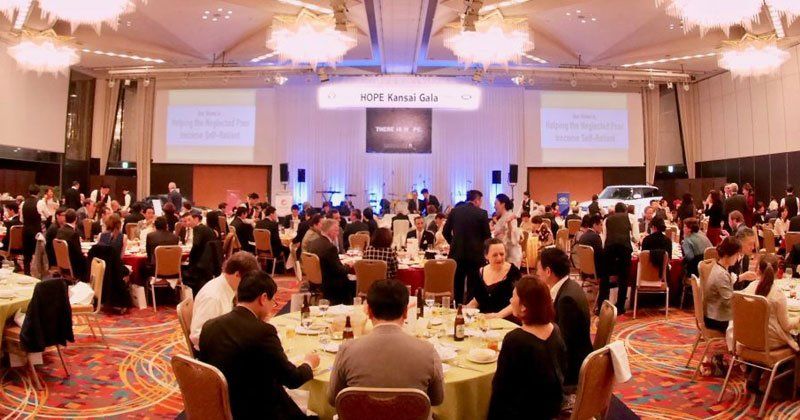Tsayteayo - Mother of Tsayte
In Tsayte, Southern Ethiopia, where we have been continuing our water and sanitation program, lives a Grandfather called Iyasu. Iyasu's Mother, who is alive and well, is known as the oldest person in the village. With her beaming smile and cheery disposition, she is loved and respected by everyone. Warmly sharing what she has, even with me, a stranger to her that could not even communicate in her language. She gave me delicious potatoes and tea, and took delight in posing for these photos.
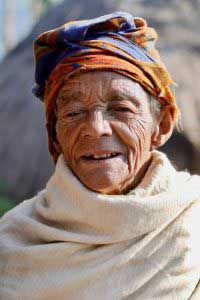
People in the village respectfully call her "Tsayteayo", Mother of Tsayte. Similar to Japan, the culture in Ethiopia places a lot of importance on respecting the elderly and appreciating all that they have done during their long lives.
The tradition for elderly men to walk with a stick shaped like a spear, is an example of this. To award this stick to a man is to revere him as someone who supports his community, leaves descendants behind and enriches them with their wisdom.
Japan has the highest life expectancy in the world, with the average for woman being 87 years and almost 81 years for men (1). 1 in 4 people are over 65 years of age (2). In contrast, the average life expectancy in Ethiopia is 65 years. This is substantially longer than what the average was in 1980, which was only 40 years, but it is still very rare for Ethiopians to see their great grandchildren. The Mother of Tsayte, however, knows hers, and we were able to take a rare photograph of a family spanning four generations here.
There are several factors that contribute to Ethiopia’s low life expectancy, one of which is a high infant mortality rate. 59 children out of every 1000 die within their first year, 88 out of every 1000 do not reach 5 years of age (compared to the world average of 31.7 out of 1000) (3) (4). The World Health Organisation attributes this to the lack of information and support available to pregnant woman and high risk to diseases and ailments for newborns.
In Tsayte, where access to health care is very limited, most women continue to deliver babies in their own homes. To address this, HOPE staff make regular house calls, educating families on sanitation and health care, so that mothers can circumvent some of the risks themselves. Through the installation of a clean water system and improving health education, HOPE staff also aim to reduce the risks surrounding child birth.
Clean water can also of course help increase the life span of adults, reducing diarrhoea and water related diseases for them as well. On this day of “Respect for the Aged”, at HOPE-JP we also hope that many more people of Tsayte will live long lives and be well like Tsayteayo.
【1】 Statistical Bureau, Statistics Japan
【2】 The World Bank, Ethiopia Life expectancy at birth, total (years) (2015) : 64.58
【3】 WHO Regional Office for Africa, Africa Health Observatory
【4】 The World Bank, World Mortality rate, infant (2015) : 31.7
Blog post and photographs by Simon Kondo

